Jonathan Dodd’s latest column. Guest opinion articles do not necessarily reflect the views of the publication. Ed
Our lovely old cat Binks has an almost Buddha-like ability to sit motionless, staring at nothing in particular. She appears to be in a trance-like state at these times, and I’m pretty sure she isn’t asleep, because her eyes are open. I often wonder what she’s thinking about, or even whether she’s thinking at all. Like all cat-cohabiters, I’m aware and somewhat jealous of their effortless inscrutability.
I’ve never been able to find a suitable and all-encompassing definition of our own human ability to think. It’s a bit of a quicksand thing, and our conversation is littered with misunderstandings about what we’re really trying to say when we use that word. “I think, therefore I am” is just a tickbox. Yes, I am. Tick. But it doesn’t say much about what that means or what we’re supposed to do with this ‘being’ thing.
All of these things fall into the box marked “Unprovable”
There’s a lot of stuff to unpack here, and I’m not going to attempt to do that unpacking now. At least not today. I suspect it would involve a whole book, which could be added to the library you could fill with all the books already written about thinking. What I’ve been wondering about is what wondering is all about, if that makes any sense.
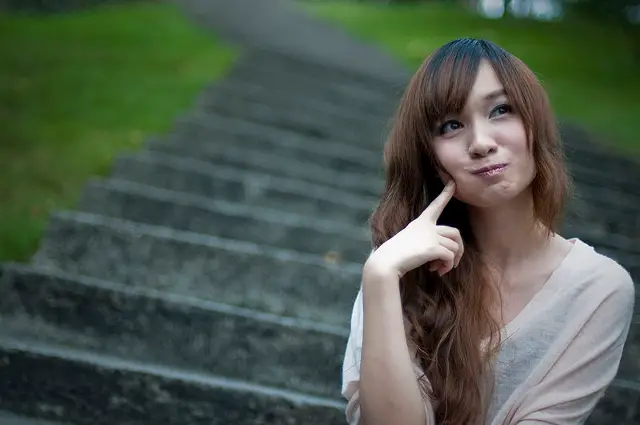
My NLP trainer spent some time on the difference between facts and imagination, things that are true or untrue, or just unprovable, whether people are lying or just very slapdash about what they believe, and whether we can genuinely make ourselves believe that something is true when we know it’s actually made up. All of these things, of course, fall into the box marked “Unprovable”.
Much of it is obscured by other mountains
I’ve always believed completely in the idea that the truth is out there. The problem is whether we can recognise it, or whether we need to be in a particular place or state to see it at all. Everyone knows that the best way to see farthest is to climb a hill or mountain, unless you have a handy aeroplane or balloon. The problem is that once you get to the summit, you can see quite a lot of countryside, but much of it is obscured by other mountains, so you need to climb down and get to the top of the highest one you can see, and so on.

The other problem is that you still can’t see enough because of the curvature of the Earth, and there’s variable visibility, especially when you’re higher up. We all know how overcast it can be at Heathrow, until your airliner rises into a sparklingly-blue sky above that solid cotton-wool covering of cloud that insists on hugging the ground. Even astronauts on the Space Station can only see a large slice of the surface of our planet.
I’ve never heard anyone complain about going into Space
Once we get up that high, there’s the additional problem of scale. Things are too far away to see in detail, and they’re so small. And what happens to us all at times like this is that we get filled with a sense of wonder. I don’t think I’ve ever heard anyone complain about going into Space. They all seem in completely overwhelmed awe at the sheer beauty and extra-ordinariness of everything they see.
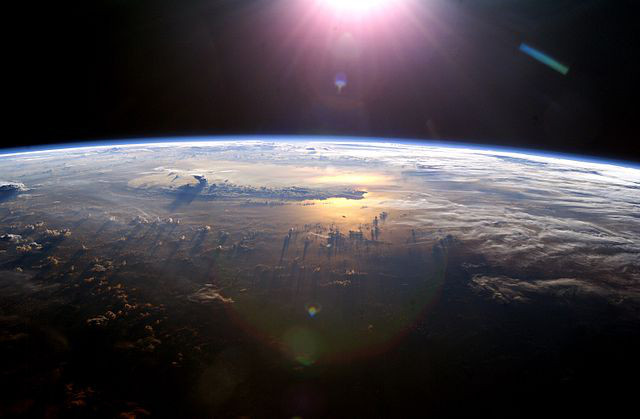
I’m wondering right now whether it should be de rigeur for all national leaders to go up into Space and get a dose of that wonder before they come back down to earth. I think that could well prevent a few wars. I’d go so far as to say that we should send hardened criminals up there too, so they get a bit of that wonder and some perspective into their souls. That, in my humble opinion, would go a lot further towards rehabilitating them than a few years in prison. It might be cheaper too.
Sometimes it can be life-changing
So here I am, with two different instances of wonder. There’s the wonder of the thing that awes us, and there’s the wondering about it all that pops ideas into our heads. I’m really sure they’re connected somehow, and I’m convinced they’re also wildly different things.
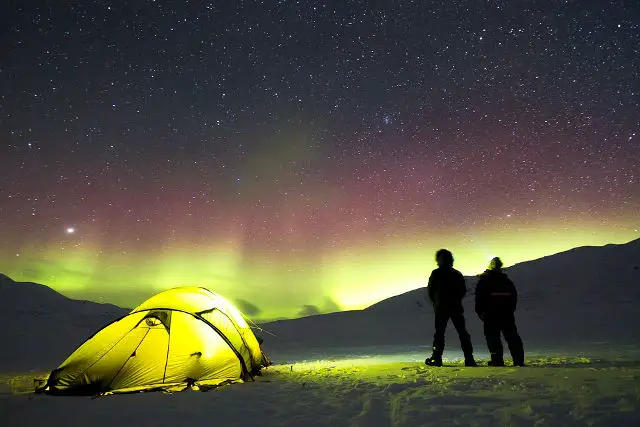
Having a sense of wonder means we can’t help but react to certain things around us. The Northern Lights, a new-born child, panda cubs, an astonishing book or film or play, standing on top of the Empire State Building, all these cause us to stop breathing as we’re swept up in that extraordinary feeling. It takes us out of ourselves, and it gives us a different perspective, at least for a while. And sometimes it can be life-changing.
Why is the sky blue?
The other kind of wondering is very right-brain. My NLP trainer made a big thing of the left and right brains. The left side is very fact-driven. This can be characterised by any question that begins with ‘when’, ‘where’, ‘who’, ‘what’, and ‘how’, all of which can be answered with specifics. These are all left-brain things. On the other hand, the right brain is concerned with imagination, creativity and non-fact-based stuff. This is the territory owned by questions that start with ‘why’.
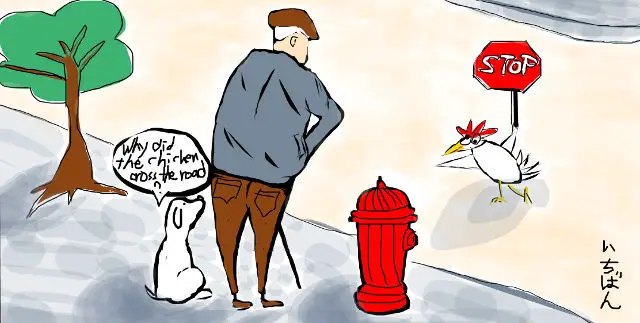
If you think about it, it’s very difficult to ask a question that starts with ‘why’, that can only have one answer. Every parent knows the futility of asking “Why did you do that?” The child probably has no idea, and they usually remain silent or make something up. Even answers that appear clear usually contain another question. “Why is the sky blue?” can only be answered with scientific facts about the way light and our eyes behave, but that doesn’t explain why it’s blue, or even what blue really is.
An invitation to historical guesswork
Questions that start with ‘why’, as my NLP trainer splendidly said, are “an invitation to historical guesswork”. They’re a direct invitation to us to use our imaginations in our right brains and make something wonderful up. At least that’s how I think of them, and I think this is closely related to that thing we do when we wonder about things. So the most powerful imaginary trigger is as simple as saying – “I wonder why…”

I often wonder why. I wonder why I write this column every week. I wonder whether I wonder more than other people. I do remember every single school report complained that I was always daydreaming. I wonder whether wondering is the same as daydreaming (probably not), and whether I was daydreaming or wondering, and I wonder whether Binks is wondering or daydreaming, or actually thinking about something. The answer, I believe, is in language itself. I think you can only think if you have language and the thought only becomes a thought when it’s turned into language.
They’re nowhere near as clever as us
Language is all about being able to classify things and attach meaning to the differences and similarities. Language is used to construct these systems and to communicate them. We talk to ourselves all the time, and we understand ourselves, and we talk to others, with slightly less success. If we didn’t have language we wouldn’t be able to do any of that, and I wouldn’t be able to write this column. When we become very good with language, we find ways to record our thoughts on walls or paper or glass screens, and that usually means growing opposable thumbs.
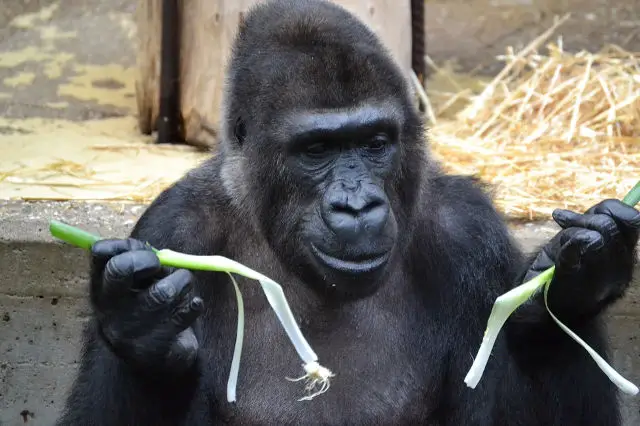
I think it’s probably possible to have writing without thumbs though, they just make it easier. And you can have opposable thumbs without developing writing, or even language. Our close relatives, the apes and monkeys, have opposable thumbs, and we describe them as intelligent. They are, when compared with a lot of other animals, but they’re nowhere near as clever as us. Give them a few million years and I expect they could catch up, but right now we’re at the top of the tree.
We don’t just notice things, we get excited about them
There are two things that make us different to all the other species inhabiting this world. The first is that we know we exist. We think, therefore we are. How we got here is unknown, and why all this turned out the way it did is an invitation to historical guesswork. But here we are, and we do know it.
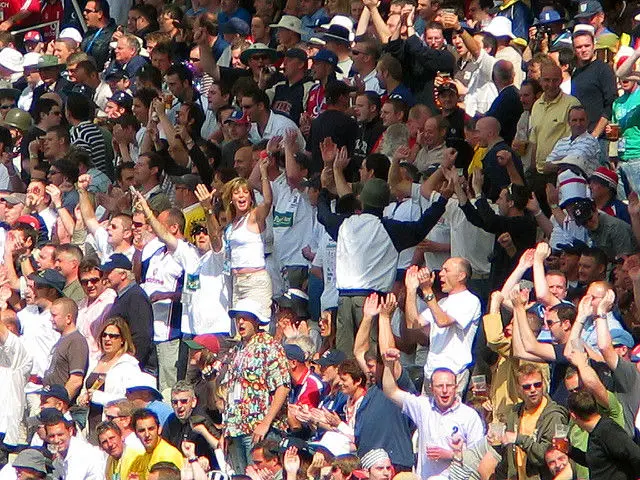
The other thing that marks us out is our sense of wonder. We don’t just notice things, we get excited about them, and we want to tell everyone else. How can you tell anyone how wonderful life is, or the aurora borealis, or how sweet this piece of fruit tastes, unless you have a sense of wonder, and language, and fingers to point with, and other people around you who can share your wonder? And how wonderful it is to share that wonder.
She’s just not that kind of animal
My Binks has opposable thumbs, but that doesn’t mean she can write or tell me what she’s thinking about. I want to know what she wonders about. I want her to share it with me and I want to share my wonder with her. But alas, she either doesn’t think I’m clever enough or she’s just not that kind of animal. So I stroke her and scratch her ears instead, and we have a wonderful moment together.
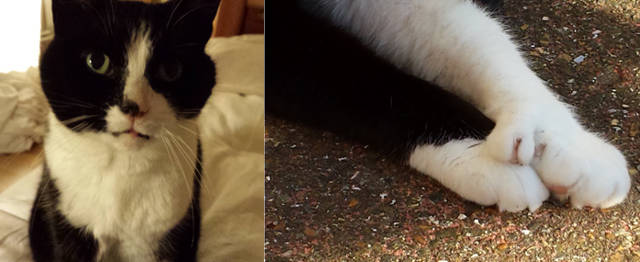
And finally, you might not feel that your life is full of wonder. I’d like to point out that wonder is everywhere, you just have to look for it. So look for it. How wonderful is it that you’re reading my thoughts, elegantly appearing with as much precision as I can muster, on a small glass screen? How wonderful is it that you can understand what I’m saying? And how wonderful that I can use similar glass screens to find pictures taken by people all over the world to illustrate these words?
![]()
We’re communicating here, and wonder and joy are taking place. It’s so wonderful that it makes me wonder why we don’t do it more often.
If you have been, thank you for reading this. You’re wonderful.
Image: Max Pixel under CC BY 2.0
Image: Xuan Zheng under CC BY 2.0
Image: Diliff under CC BY 2.0
Image: NASA under CC BY 2.0
Image: Noel Bauza under CC BY 2.0
Image: Ichiban Yada under CC BY 2.0
Image: sashomasho under CC BY 2.0
Image: skeeze under CC BY 2.0
Image: gareth1953 under CC BY 2.0
Image: © Jonathan Dodd
Image: max pixel under CC BY 2.0




